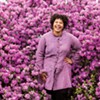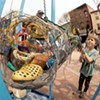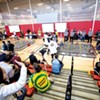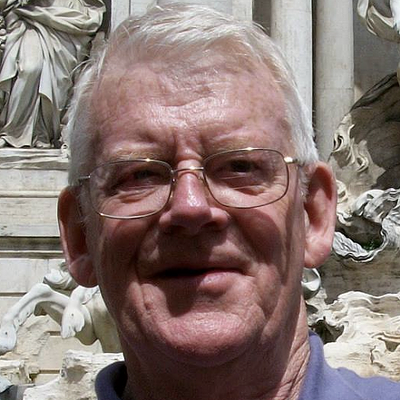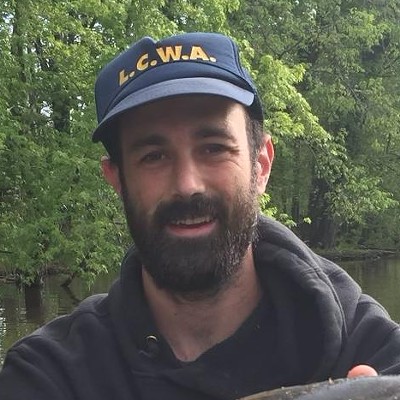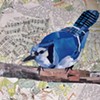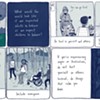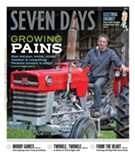Published October 6, 2020 at 10:00 a.m.
What follows are distilled quotes from a conversation with Stowe-based writer and photographer Jan Reynolds, who's proven she's willing to go to the ends of the earth to get a story. Reynolds, now 64, holds multiple records, including the world record for women's high-altitude skiing. She was part of the first expedition to circumnavigate Mount Everest, living at 20,000 to 25,000 feet for four months while temperatures bottomed out at -30° Fahrenheit. She's authored 20 books for children and adults, including the children's book series Vanishing Cultures. She's also a speaker at K-12 schools, colleges and corporate events. Reynolds released two new children's books during the pandemic and says all her work shares a common message: "We are one human family celebrating life on Earth, and that's an Earth we need to care for."
On being raised in a large 7th-generation Vermont family:
I grew up on a dairy farm in Middlebury, and I am number six of seven. In order to play with the older kids, I would have to acquiesce to whatever they wanted to do. They'd go, 'Jan, I think you can fit in this tractor tire and we'll hang onto it.' Well, they put me in a tractor tire and they rolled me down a hill. I could play with the big kids if I would be their guinea pig. Going on an expedition is no big deal [when] you're used to lumps and bumps and surprises and having to get along and having to acquiesce.
On being the only woman on expeditions:
There weren't other women doing it at that time, at that level. So if I wanted to do it, it was just going to be with men. I crossed the Himalayas solo for National Geographic, covering the salt trade. What's behind it is curiosity. That's one of the biggest things to really foster in your kids, because that keeps you young. We did this before walkie talkies, before helmets, before GPS. We climbed together in groups of two or four with no support camps and everything we needed on our backs. We'd go for months, and no one on the planet knew where we were. There were times when one of the expedition members forgot the map. Then, in Tibet, we walked off the map because China had taken over Tibet and there weren't satellites to map it. We were truly lost. One of the biggest gifts I was given is that I had the ability to be truly lost on planet Earth.
How she began writing for children:
I fell in love with the people in these far-flung areas when I was setting world records climbing and skiing. The indigenous people were welcoming, hardworking. Perhaps it reminded me a little bit of farm life, living close to the land and the animals. That got me more interested in the people than in setting another record. We all come from indigenous people. It's very important to see the world through their eyes, because we are them. I realized at the time I was making the [Vanishing Cultures] books that it was really important to capture this material for children. I wanted to see change in the world. If I worked with kids, I'd have a better chance of affecting change.
On her two new books, Loving Kindness and The Lion Queens of India:
The Lions Queens of India is about the Asiatic lion. There were only 12 left in India, and these women, who are Hindu and Muslim, have become rangers for the lions and brought [the population] back to over 600. Kids in classrooms around the world helped me build this book. While documenting the story, I shared photos on social media. Kids would tweet at me every day, and I shaped the book around questions they asked me like, 'What do lions eat?' and 'Can they climb trees?' There was even a kindergarten class in Burlington. I felt as if I had the children with me, and we worked on it together, sharing ownership of the book.
[In Loving Kindness], the little boy is learning his school lessons about love, kindness and compassion. Those are very big concepts for little people. We define them in the book, and we hope that it's something that becomes part of our children's vocabulary worldwide. I don't want our future leaders to not understand those concepts. That's why I built this book and put it up for free online.
Visit YouTube to read Loving Kindness, and Phoenix Books in Burlington to purchase Lion Queens of India. Visit janreynolds.com for more information or to request a signed book.
This article was originally published in Seven Days' monthly parenting magazine, Kids VT.
More By This Author
Speaking of...
-

Woman Wonder: The U.S. Ski & Snowboard Hall of Fame Recognizes Stowe Adventurer Jan Reynolds
Mar 15, 2023 -

Vermont Visionaries: Emma Makdessi, Camp Outright Codirector
Aug 24, 2021 -

Vermont Visionaries: Kia'Rae Hanron , K-12 Learning Advisor
Jun 29, 2021 -

Vermont Visionaries: ECHO Exhibit Creator Chris Whitaker
Jun 1, 2021 -

Vermont Visionaries: Theresa Tomasi, Mother of 27
May 3, 2021 - More »
Comments
Comments are closed.
From 2014-2020, Seven Days allowed readers to comment on all stories posted on our website. While we've appreciated the suggestions and insights, right now Seven Days is prioritizing our core mission — producing high-quality, responsible local journalism — over moderating online debates between readers.
To criticize, correct or praise our reporting, please send us a letter to the editor or send us a tip. We’ll check it out and report the results.
Online comments may return when we have better tech tools for managing them. Thanks for reading.




































